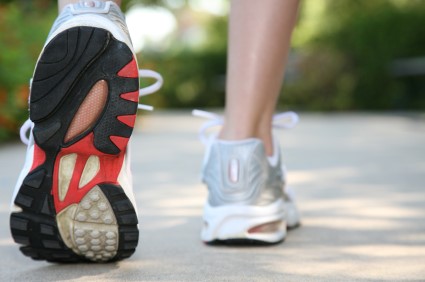 Shoes are important in determining the comfort of your feet, but they are also important in mitigating the risk of injury. According to those who run with minimalist shoes, it is suggested that shoes with low or no heel-to-toe drop can help lead to a reduced risk of injury. This shoe concept allows the feet to run and distribute impact force and weight more evenly. Shoes with higher heels can lead to your body being tilted out of alignment. Lower shoe drops can also help with relief for injuries or conditions such as Morton’s neuroma or arthritic joint pain.
Shoes are important in determining the comfort of your feet, but they are also important in mitigating the risk of injury. According to those who run with minimalist shoes, it is suggested that shoes with low or no heel-to-toe drop can help lead to a reduced risk of injury. This shoe concept allows the feet to run and distribute impact force and weight more evenly. Shoes with higher heels can lead to your body being tilted out of alignment. Lower shoe drops can also help with relief for injuries or conditions such as Morton’s neuroma or arthritic joint pain.
Runners can still be prone to running injuries even with proper precautions. If you are suffering from a running injury, contact Dr. Joshua David Scoll of Pennsylvania. Our doctor can provide the care you need to keep you pain-free and on your feet.
How to Prevent Running Injuries
Many common running injuries are caused by overuse and overtraining. When the back of the kneecap starts wearing out and starts causing pain in your knee, this is commonly referred to as runner’s knee. Runner’s knee is a decrease in strength in your quadriceps and can occur if you’re not wearing properly fitted or supporting shoes. To prevent runner’s knee, focusing on hip strengthening is a good idea, as well as strengthening your quads to keep the kneecaps aligned.
What Are Some Causes of Running Injuries?
- One cause of a common running injury is called iliotibial band syndrome.
- Plantar fasciitis is also another common injury.
- Stress fractures can occur from overtraining, lack of calcium, or even your running style.
Best Ways to Prevent Running Injuries
- Wear footwear that fits properly and suits your running needs.
- Running shoes are the only protective gear that runners have to safeguard them from injury.
- Make a training schedule. Adding strengthening exercises as well as regular stretching can help keep you strong and limber and can lessen the possibility of injuries.
- Stretching keeps muscles limber, this will help you gain better flexibility.
If you have any questions please feel free to contact our offices located in Philadelphia and Bensalem, PA. We offer the newest diagnostic tools and technology to treat your foot and ankle needs.
